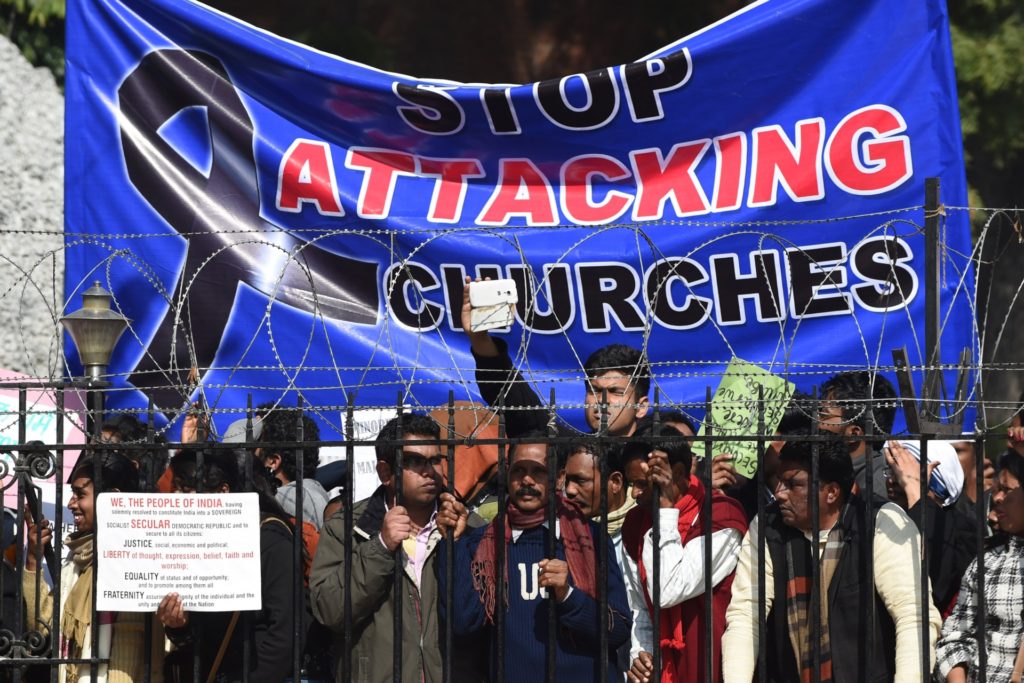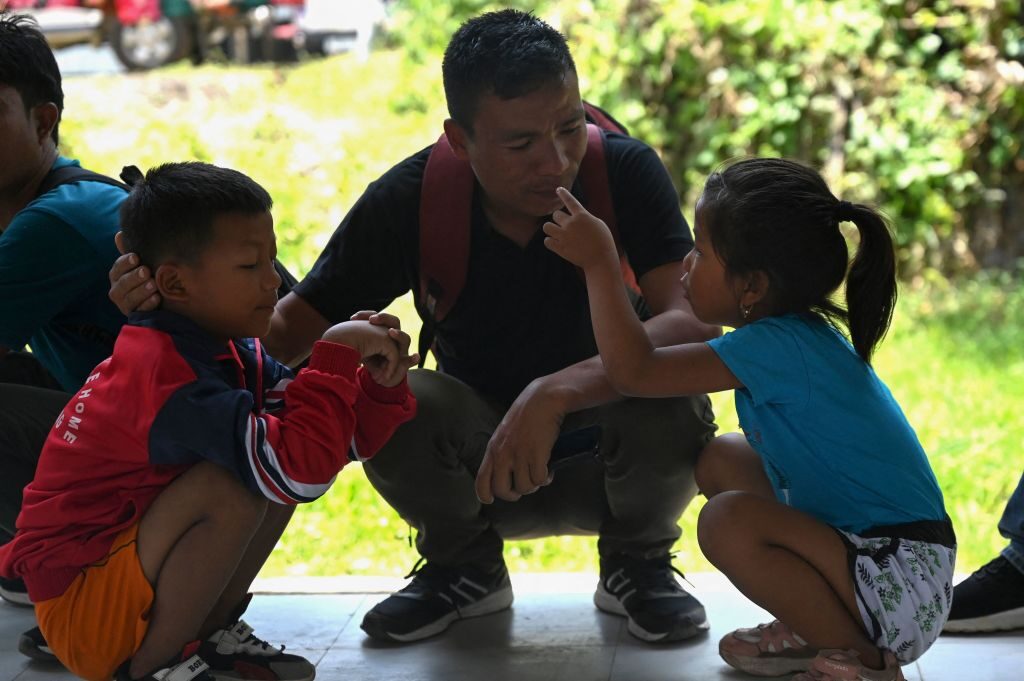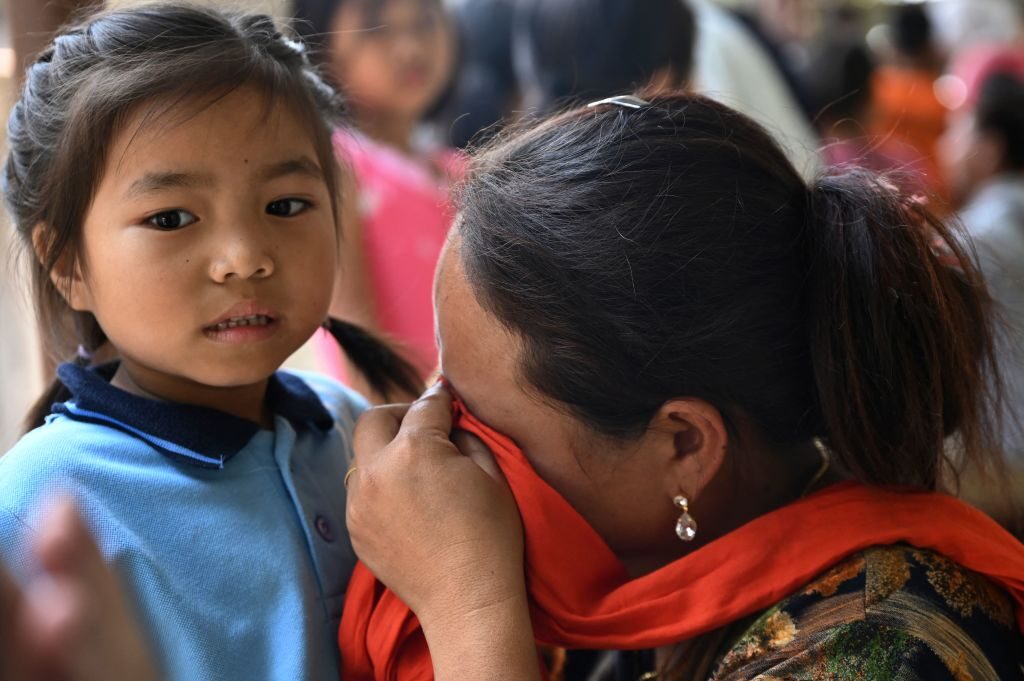Riots in northeastern India’s state of Manipur have killed 62 people over the past week and driven some 35,000 from their homes.
The situation is a wild free-for-all battle between some 30 different tribes and the Meitei, the state’s ethnic majority.
Police and military forces were sent in to stabilize the situation, and by Tuesday had begun escorting some displaced residents back to their homes, or the burned ruins of their homes.
“The situation is slowly limping back to normal,” said Manipur Chief Minister N. Biren Singh on Tuesday. “We shall order a high-level probe to enquire into the violent clashes.”
On the other hand, state lawmaker Lorho S. Pfoze said the situation in Manipur remains “extremely tense,” and “victims are scared to return to their villages as they fear clashes could erupt again.”
Manipur – Indian media thinks Manipur is in Mars! pic.twitter.com/9GSEyptVO3
— Ashok Swain (@ashoswai) April 29, 2023
The Meitei Hindus are the majority group in Manipur, tracing their lineage back to the first century A.D. when the state was an independent kingdom. Hinduism began to spread among the Meitei during the 15th Century and it eventually became the official religion of the kingdom, displacing a local faith called Sanamahi.
Most of the other ethnic groups in Manipur turned to Christianity.
Manipur, which lies along the border of what is now called Myanmar, was conquered by the Burmese for some time and annexed by India in 1949. It was formally incorporated as the 19th state of India in 1972.
This turbulent history nourished restless modern-day politics. The Meitei have some separatist insurgent groups and those separatists harbor lingering animosity toward the many smaller tribes living in the province, accusing them of not doing enough to preserve Manipur’s independence after the Indian annexation. Some of the tribes are themselves separatists who believe they deserve homelands distinct from both India and the Meitei – and these smaller tribes often view each other as competitors for land, influence, and government funding.

File/A minority Indian Christian holds a placard with the Preamble to the Constitution of India by a church perimeter fence topped with razor wire as they demonstrate outside the Sacred Heart Cathedral following attacks on churches in New Delhi on February 5, 2015. (SAJJAD HUSSAIN/AFP via Getty)
The tribes generally believe the Meitei majority commands too much power and money in Manipur, while the Meitei resent the central government’s insistence on setting aside ancestral lands and jobs for tribal residents.
A unique quirk of Meitei culture is that they insist on living in Manipur’s valleys, near its rivers, which figure prominently in their religious observances. The tribes, comprising about a third of the state’s population, mostly live in the rougher hill country. Manipur has a long history of violent scuffles between the hill and valley dwellers, and occasionally between different hill tribes.
Last week, over 50,000 mostly Christian tribal residents demonstrated in the state capital of Imphal against a Meitei demand for special legal status and benefits from the Indian government. The Meitei want India to reserve less land and fewer government jobs for tribal residents, shutting down affirmative action programs that have been running for decades.
In April, the high court in Manipur asked the central government to designate the Meitei as a “scheduled tribe.” The existing scheduled tribes vehemently opposed this request, arguing the Meitei are the largest and richest group in the state.

Children evacuated by the Indian army during the anti-Christian riots in Manipur state reunite with their father at a temporary shelter at the Leimakhong Army Cantonment in the northeastern Indian state of Manipur on May 10, 2023. More than 50 people have been killed in the region in clashes between the majority Meitei people, who are mostly Hindus, and the mainly Christian Kuki tribe. (ARUN SANKAR/AFP via Getty)
The tribes suspected the Meitei demands would find favor with the Hindu nationalist BJP party that holds power in New Delhi. BJP and an even more energetically nationalist offshoot, the RSS, have aggressively courted the Meitei to expand their political influence in Manipur.
“The tribal and non-tribal groups have had a history of jealousy over the distribution of economic resources and opportunities, but this time their anger just could not be contained,” observed Khuraijam Athouba, one of the Manipur politicians attempting to negotiate peace between the feuding groups.
The tribes were also angered by a state government program that began in February to push tribal communities out of forested hill terrain that was reserved for state use. The state government had other uses in mind for the forests, it suspected large numbers of illegal migrants from Myanmar – who have some ethnic affinity for the neighboring tribes of Manipur – were living there and it suspected tribal folk were growing illegal drugs in the forests, including marijuana and opium poppies. The tribes bitterly resented government efforts to drive them from their ancestral lands.
It is not clear who threw the first punch at the demonstrations in Imphal and Churachandpur, a district dominated by the Christian Kuki tribe, but on May 3 the protests erupted into staggering violence that quickly spread into the hill country.
Christians in Manipur said Meitei mobs burned dozens of churches and hundreds of homes. A mob broke into Manipur University, which is administered by the Christian Kuki tribe, to the astonishment of its staff. Teachers at the university said no security personnel were deployed to protect the facility, which was an obvious target because so many of the tribal demonstrators were students.
Kolkata University academic Ngaineilam Haokip, who hails from Manipur, said Hindu Meitei mobs also turned against Christian Meiteis.

A girl evacuated by the Indian army during the ethnic riots in Manipur state reunites with her mother at a temporary shelter at the Leimakhong Army Cantonment in the northeastern Indian state of Manipur on May 10, 2023. Thousands of troops have been deployed to restore order, while around 23,000 residents have fled their homes for the safety of ad-hoc army-run camps for the displaced. (ARUN SANKAR/AFP via Getty)
“They targeted their own brethren who follow Christ by burning their churches,” Haokip told Christianity Today (CT) the day after the anti-Christian riots began.
“If this is not a pogrom, what is?” a Christian leader in Manipur told CT, asking to remain anonymous because he feared for his safety.
“They are burning churches when the protest rally was simply against the inclusion of Meiteis as Scheduled Tribe by All Tribal Student Union Manipur (ATSUM). There is definitely a religious angle here,” he said.
CT cited reports some of the violence was triggered by outrage over vandalism and arson. Retaliatory attacks quickly escalated between tribal and non-tribal youth gangs. The tribals lost these battles, in part because eyewitnesses said the Meitei Hindu groups were suspiciously well-armed and prepared for violence.
“Tribals were not prepared for a war. They were holding peace rallies against the demand for Scheduled Tribe status by Meiteis. The Meiteis on the other hand, were planning for this kind of confrontation for a long time, it seems. They collected gun licenses and guns and then lit the fire,” Haokip said.
On Sunday, the Indian Army said it acted professionally and impartially to end the spiraling violence, after each side of the conflict accused the Army of aiding the other. The Army said roughly equal numbers of Meiteis and tribals were sheltered in relief camps.
The Syro Malabar Catholic Church in Manipur on Thursday criticized Prime Minister Narendra Modi for remaining silent while homes and churches were burned and said other Christian organizations in India were handling the crisis very delicately because they wanted to maintain good relations with the Modi government.
The Syro Malabar church said the crisis in Manipur could be seen as ethnic cleansing or even genocide, and urged Christians across India to speak out more forcefully against it.


